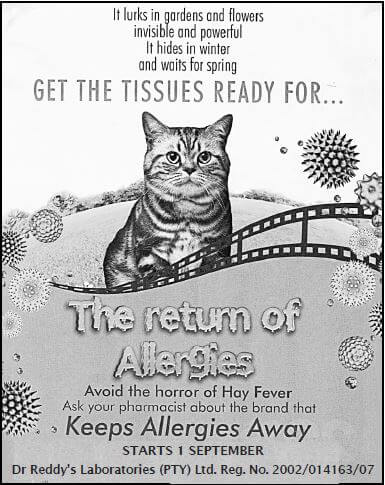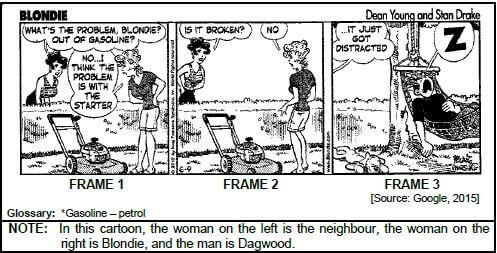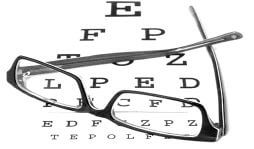ENGLISH FIRST ADDITIONAL LANGUAGE PAPER 1 GRADE 12 QUESTIONS - NSC PAST PAPERS AND MEMOS NOVEMBER 2016
Share via Whatsapp Join our WhatsApp Group Join our Telegram GroupENGLISH FIRST ADDITIONAL LANGUAGE
PAPER 1
GRADE 12
NSC PAST PAPERS AND MEMOS
NOVEMBER 2016
INSTRUCTIONS AND INFORMATION
- This question paper consists of THREE sections:
SECTION A: Comprehension (30)
SECTION B: Summary (10)
SECTION C: Language (40) - Answer ALL the questions.
- Read ALL the instructions carefully.
- Start EACH section on a NEW page.
- Leave a line between answers.
- Number the answers correctly according to the numbering system used in this question paper.
- For multiple-choice questions, write only the question number and the letter (A–D) of the correct answer.
- Pay special attention to spelling and sentence construction. 9. Use the following time frame as a guideline:
SECTION A: 50 minutes
SECTION B: 30 minutes
SECTION C: 40 minutes - Write neatly and legibly.
QUESTIONS
SECTION A: COMPREHENSION
QUESTION 1
Read BOTH TEXT A and TEXT B and answer the set questions.
TEXT A
WITH A PINCH OF SALT
|
1.1 Name TWO beliefs that South Africans have about fast foods. (2)
1.2 Identify the TWO organisations that worked together on a study which surveyed the salt content in children's fast food meals in South Africa. (2)
1.3 Quote a SINGLE word (paragraph 3) to prove that the WASH survey was not conducted only in South Africa. (1)
1.4 Explain what is meant by 'leading fast food outlets' (line 9). (2)
1.5 Explain why is it important for South Africans to take the results of the studies by TNS Surveys and WASH seriously. (3)
1.6 State TWO South African outlets that participated in the international survey on the salt content of fast foods. (2)
1.7 How does the McDonald's chicken nugget meal that is sold in South Africa differ from the one that is sold in the UK? (2)
1.8 State TWO steps that have been implemented by the Department of Health to address the findings of the surveys into salt consumption in South Africa. (2)
1.9 Why are children eating fast foods in the UK and USA probably healthier than South African children who eat fast foods? Give a reason for your answer. (2)
1.10 The passage states that legislation was recently signed to make salt reduction in the food industry MANDATORY over a period of time.
Choose the correct answer to complete the following sentence:
The capitalised word in the sentence above means that the reduction of salt in the food industry is …
- voluntary.
- compulsory.
- optional.
- random. (1)
1.11 In your view, is this passage effective in influencing the readers to reduce their salt intake? Substantiate your answer. (3)
1.12 Discuss the suitability of the title, WITH A PINCH OF SALT. (2)
TEXT B 
[Source: www.weathersa.co.za, 2015]
Refer to the illustration above (TEXT B).
1.13 What does the illustration above represent? (1)
1.14 How does the information given for Saturday differ from that given for Friday? Give a reason for your answer. (2)
1.15 Which is the coolest sunny day? (1)
1.16 Discuss whether the visuals accurately convey the message of this text. (2)
TOTAL SECTION A: 30
SECTION B: SUMMARY
QUESTION 2
South Africa is facing a water crisis.
You have been asked to write an article for your local newspaper on how to save water.
Read TEXT C below and list SEVEN points that you will include in your article on how to save water.
INSTRUCTIONS
- Your summary must be written in point form.
- List your SEVEN points in full sentences, using no more than 70 words.
- Number your sentences from 1 to 7.
- Write only ONE point per sentence.
- Use your OWN words as far as possible.
- Indicate the total number of words you have used in brackets at the end of your summary.
TEXT C
SAVING A FRAGILE RESOURCE South Africa ranks as one of the top thirty driest countries in the world. This knowledge should encourage a new approach towards the way we use our fragile water resources. As South Africans, we have had to change our behaviour to adapt to electricity cuts, so the water crisis demands a change in our habits relating to water usage. [Adapted from Home Improvers, July 2015] |
TOTAL SECTION B: 10
SECTION C: LANGUAGE
QUESTION 3: ANALYSING AN ADVERTISEMENT
Study the advertisement (TEXT D) below and answer the set questions.
TEXT D 
[Adapted from Drum Magazine, 13 November 2014]
3.1 Who is the target audience of this advertisement? (1)
3.2 According to this advertisement, how can one avoid hay fever and allergies? (1)
3.3 Discuss the techniques that the advertiser uses to convey the idea of a horror movie.
NOTE: In your answer, refer to the visual and verbal techniques. (2)
3.4 Refer to the line, 'Get the tissues ready for …'
Explain why ellipsis has been used here. (1)
3.5 Give the singular form of the underlined word in the following:
Dr Reddy's Laboratories (1)
3.6 Explain what 'Starts 1 September' refers to. (2)
3.7 Discuss the effectiveness of this advertisement. (2) [10]
QUESTION 4: ANALYSING A CARTOON
Read the cartoon (TEXT E) below and answer the set questions.
TEXT E 
4.1 Refer to FRAME 1.
4.1.1 Where does the conversation between Blondie and her neighbour take place? (1)
4.1.2 State ONE visual clue which has made the neighbour conclude that there is a problem with the lawnmower. (1)
4.1.3 State the TWO meanings of 'the starter' that Blondie is referring to. (2)
4.2 Complete the following tag question.
The lawnmower is broken, ... ? (1)
4.3 Choose the correct answer to complete the following sentence: In FRAME 3, Dagwood is sleeping in a …
- bed.
- swing.
- hammock.
- cot. (1)
4.4 Identify the clues which indicate that Dagwood is fast asleep. (2)
4.5 Is Blondie's calm tone an appropriate reaction to what is happening in FRAME 3? Discuss your opinion. (2) [10]
QUESTION 5: LANGUAGE AND EDITING SKILLS
5.1 Read the passage (TEXT F) below, which has some deliberate errors, and answer the set questions.
TEXT F
HOW TO PROTECT YOUR CELLPHONE
[Adapted from Daily News, 16 July 2015] |
5.1.1 Correct the SINGLE error in each of the following sentences. Write down ONLY the question numbers and the words you have corrected.
- Sand, surf and sun are good for the soul but their horrible for your cellphone. (1)
- You need something substantial to keep it save from the elements. (1)
- A strong case should have two lines in defence. (1)
- Keep your device in the shade is the best defence. (1)
5.1.2 Replace 'bunch' in the following sentence with a more suitable collective noun.
Few things in life say relaxation like a bunch of good books and a beach blanket on a sunny afternoon. (1)
5.1.3 Rewrite the following sentence as a question.
You're right to hesitate. (1)
5.1.4 Choose the correct answer to complete the following sentence:
Sand, surf and sun (line 5) is an example of …
- personification.
- alliteration.
- onomatopoeia.
- metaphor. (1)
5.1.5 Rewrite the following sentence in reported speech:
She said, 'Tomorrow I will spend the day at the beach.' (4)
5.1.6 Rewrite the following sentence in the passive voice:
Heat can cause serious damage. (1)
5.1.7 Study the following sentence and use a homonym for the word 'case' in a sentence of your own:
Regardless of the case you choose, if waterproofing is your primary need, get a shockproof, water-resistant case. (1)
5.1.8 Study the following sentence and give a synonym for the word 'perils' in the following sentence:
None of these cases, though, will protect your cellphone against the perils of heat and direct sunlight. (1)
5.2 Study the text (TEXT G) below and answer the questions.
TEXT G
EYE SPY Why eye examinations are important |
[Source: Indwe, October 2015]
5.2.1 Complete the following sentence by filling in the missing word:
'Eye Spy' is an example of a pun. The writer has used the word 'eye' instead of ... (1)
5.2.2 Provide an antonym for the underlined word in the following sentence:
Eye examinations are important. (1)
5.2.3 Rewrite the following sentence in the simple future tense:
National Eye Care Awareness Month is taking place until 18 October. (1)
5.2.4 Remove the contraction in the following sentence:
It's worth making time to take proper care of your eyes. (1)
5.2.5 Rewrite the following sentence by giving the correct form of the word in brackets:
Make your eye health a (prioritise). (1)
5.2.6 Provide the correct degree of comparison in the following sentence:
It is (health) to have your eyes tested once a year than every second year. (1)
[20]
TOTAL SECTION C: 40
GRAND TOTAL: 80
